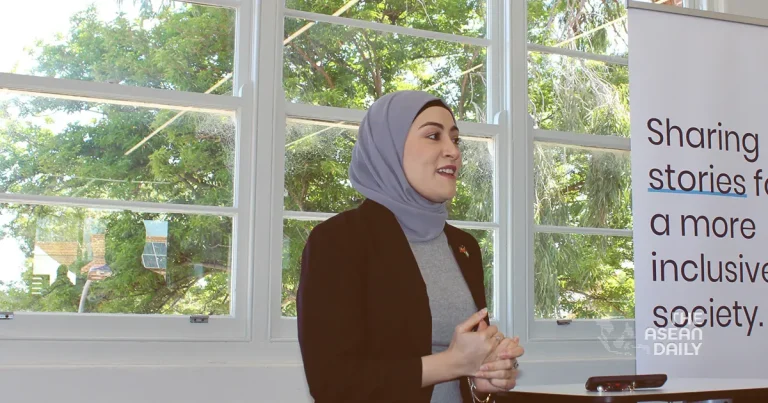10-7-2024 (SYDNEY) The resignation of Fatima Payman, Australia’s first hijab-wearing Senator, from the ruling Labor Party has shed light on the country’s deep-rooted Islamophobia. The young politician faced a torrent of intimidation and bullying from her own colleagues over her principled vote to recognise Palestinian statehood, a stance that put her at odds with the Labor government’s official position.
Payman’s defiant support for the Palestinian cause, which included publishing an opinion piece in Al Jazeera prior to the fateful vote, sparked a swift and severe backlash. The Afghan-born senator, whose family fled Afghanistan after the Taliban took over in 1996, claims she was ostracized by her Labor peers, who reportedly “leaked” to the national broadcaster that she had sought “God’s guidance” on the issue – a thinly-veiled attempt to portray her as an extremist.
Right-wing politicians wasted no time in renewing warnings that Payman’s actions could foster a new “Muslim political party” and threaten Australia’s “social cohesion.” Her decision to vote with the Greens to support a motion on Palestinian statehood late last month resulted in her suspension from the Labor caucus, ultimately leading to her resignation from the party last week. She now serves as an independent senator in parliament.
Observers argue that Payman’s resignation has exposed the ugly underbelly of Australian politics, where principled stances on sensitive foreign policy issues can result in a politician’s career being unceremoniously derailed. The backlash against her has been seen as a manifestation of the deep-seated Islamophobia that persists within the country’s political sphere.
Media Watch, a media criticism programme from the national broadcaster ABC, denounced Payman’s former colleagues’ remarks as blatant “dog whistling” to anti-Muslim sentiment. The Islamophobia Register of Australia expressed deep concern that the “current tone of political commentary and public discussion” could “inflame” further discrimination against the Muslim community.
Muslim journalists and experts have slammed the mainstream media’s tone-deaf handling of Islamic religious terminology, dismissing the furore as a “beat-up” online. Payman herself decried being singled out as “a visibly Muslim woman” and said she felt offended and insulted for being asked to justify her use of the word “God.”
This was not the first time Payman had faced such targeted abuse. Earlier this year, she was subject to cries of “terrorist” in parliament over her vocal support for the Palestinian cause and her use of the phrase “from the river to the sea, Palestine will be free” – deemed by some as antisemitic and sympathetic to extremism.
In contrast, political leaders across the Asia-Pacific region have taken a more unequivocal stance on the Palestinian crisis, with Malaysia’s Prime Minister Anwar Ibrahim emerging as a leading regional voice opposing Israel’s actions in Gaza, and Indonesia’s outgoing President Joko Widodo vocally condemning the attacks.
Closer to home, the Australian government has sought to address the growing bigotry by appointing a new special envoy to combat antisemitism and pledging an envoy to tackle Islamophobia “shortly” as well. However, the opposition has struck a more ominous tone, with Opposition Leader Peter Dutton speculating that having “Muslim candidates” in a future Labor government would be “a disaster,” while his colleagues have expressed alarm about a perceived “Muslim voices movement” in Australia.
Analysts note that the opposition’s concerns stem from a fear of a political party with a specific Muslim identity, rather than faith-based parties in general. They argue that Australia’s multiculturalism remains uneasy about the place of Muslims in Australian society, often demanding explicit support for “Australian values” from Muslim communities in a way no other migrant group experiences.




